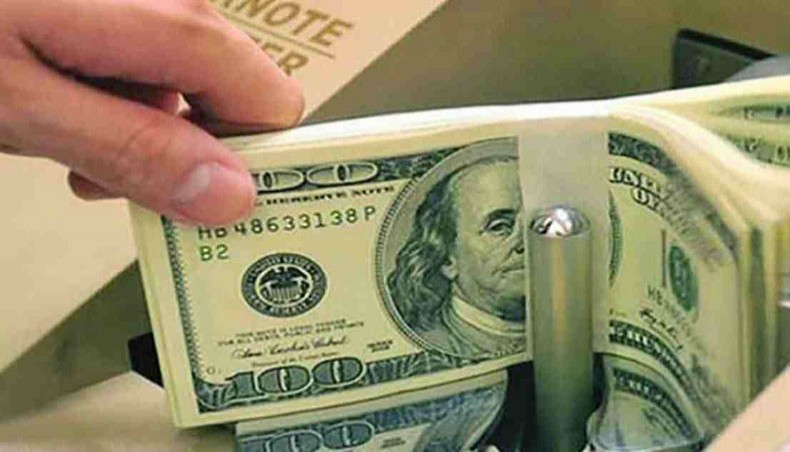
The government’s interest payment against foreign debt rose to more than double in the first seven months of the current financial year compared to the same period in FY23, against the backdrop of the foreign loan spree over the past decade.
The monthly update of the Economic Relations Division showed that $760.74 million was spent between July and January of FY24 to clear interest on the foreign debt.
The amount was $365.87 million between July and January of FY23.
The sharp rise in interest payment has been attributed to the growing accumulation of foreign loans, many of which have been taken on at high interest rates, in recent years.
Economists said that the jump in interest payment was not a good sign, as the country was facing a shortage of dollars that pulled down forex reserves to around $20 billion from $48 billion in August 2021.
The economic returns of foreign loans taken to implement development projects should be ensured properly, said former World Bank Dhaka office chief economist Zahid Hussain.
Otherwise, he said, the growing interest payment will be a burden for the government.
The government’s outstanding foreign debt stood at $62.4 billion in FY23, compared to $20.33 billion in FY10, because of the implementation of big-budget projects such as Rooppur Nuclear Power Plant, Padma Bridge Rail Link, Karnaphuli underneath the river tunnel, Rampal coal-fired power plant, and metro rail in Dhaka.
In FY23 alone, the government borrowed $10 billion, with $2.57 billion taken as non-concessional loans.
According to the existing provision in Bangladesh, a loan with a grant element of less than 25 per cent is treated as a non-concessional loan.
High interest rates with short grace periods are the main features of the non-concessional loan, said Policy Research Institute executive director Ahsan H Mansur.
He said that the government should be more careful when borrowing non-concessional loans, as those mainly maintain a market-based exchange rate, compared to fixed interest rates for concessional loans.
The current market-based interest rate of the non-concessional loans following the introduction of the Secured Overnight Financing Rate in the past year hovers around 9 per cent, according to a finance ministry official.
The official blamed the continuous interest rate hike by the US Federal Reserve for almost the past two years for pushing up the benchmark interest rate to 5.5 per cent and increasing the overall lending rate in the international market.
Referring to a calculation by ERD, he said that the amount of the government’s foreign loans with a market-based interest rate would grow to 42 per cent in 2026 from 26 per cent in 2020, increasing the loan repayment further.
The government has been facing a shortage of dollars, which has caused a sharp economic downturn and pushed up inflation.
The government is already taking $4.7 billion in loans from the International Monetary Fund under a programme to expire in May 2026.
Ahsan H Mansur said that the government was also running the risk of maintaining its sound debt servicing record because of less-than-expected revenue generation.
The gap between debt and tax is widening, he said.
The ERD monthly update released on Sunday said payment for interest were increasing much faster than the principal amount.
It calculated that the principal amount stood at $1,096.03 million between July and January of
FY24, compared to $918 million during the same period of FY23.
The principal amount has to be paid back after the grace period, which is five to ten years for non-concessional borrowings and more than 10 years for concessional loans.
However, the interest payment is counted from the first day of loan disbursement.
Institute for Inclusive Finance and Development executive director Mustafa K Mujeri said that export incomes and the inflow of remittances played good roles in the government’s capacity to maintain foreign loan payment.
He lamented that the growth of exports and remittances had slowed down in recent years.
On Thursday, finance minister Abul Hassan Mahmood Ali admitted that the government was under pressure to meet the repayment obligation of foreign loans while talking to reporters.
Answering whether the growing repayment of debt created high pressure on the government, the finance minister said there were some pressures, but that was not an acute one.
New Age









